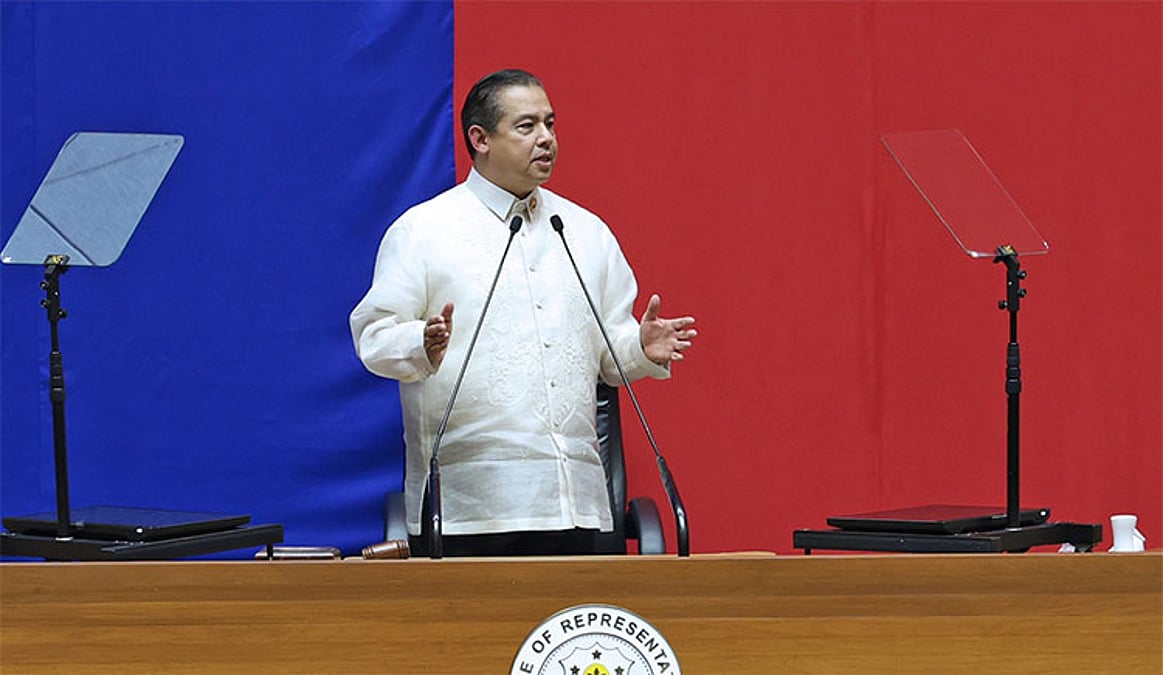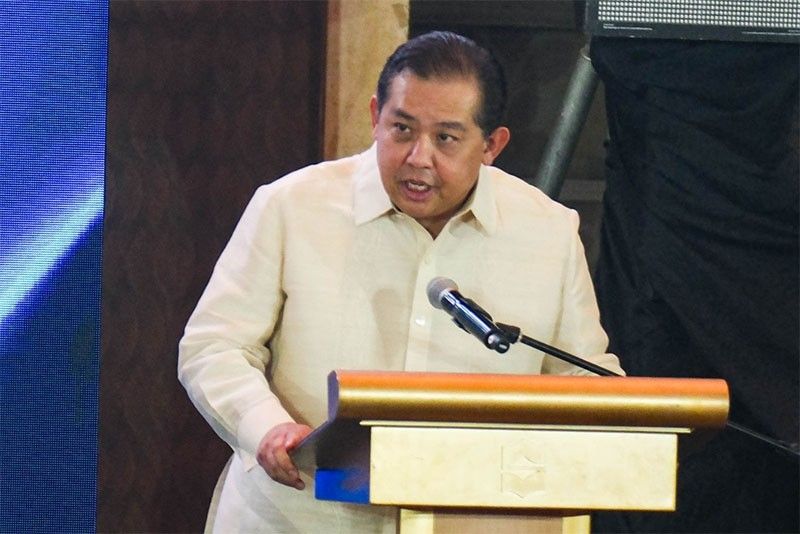When the name Ferdinand Martin Romualdez appears in the headlines, it is usually accompanied by influence, power, and prestige. But in October 2025, his name became synonymous with something far more explosive — a multi-billion-peso flood control scandal that now threatens to redefine the country’s political landscape and test the credibility of its institutions.
For months, whispers had circulated through the corridors of power — hushed conversations among lawmakers, cautious glances from aides, and cryptic social media posts hinting that one of the country’s most powerful political figures might be caught in the middle of an enormous corruption web. But when Romualdez — former House Speaker, cousin of President Ferdinand Marcos Jr., and one of the most influential men in the Philippines — finally appeared before investigators at the Independent Commission for Infrastructure (ICI) in Taguig, the rumors transformed into a full-blown national spectacle.
The Scandal That Refuses to Die

The “flood control scandal,” as the media now calls it, began with a simple yet damning audit. The Commission on Audit had uncovered massive discrepancies in the budget allocations and expenditures for flood control and drainage projects across several regions. Billions of pesos meant for infrastructure resilience — to protect Filipino communities from yearly floods — appeared to have vanished into thin air.
According to early findings, kickbacks, ghost contractors, and manipulated budgets were part of a sophisticated scheme that funneled public funds into private pockets. What made the controversy even more alarming was that these projects had been approved under the watch of the House of Representatives during Romualdez’s tenure as Speaker.
When ICI officials began tracing the money trail, several familiar names surfaced — including Zaldy Co, a former Ako Bicol Party-list representative long accused of orchestrating questionable projects. But it was the mention of Romualdez that sent political shockwaves through Manila.
A Silent Storm Brews

For weeks, Romualdez maintained a public silence that only deepened speculation. Media outlets described him as being “in hiding,” while social media teemed with memes about him “retreating to his lair.” Yet those close to him insisted he was quietly preparing — consulting legal teams, collecting documents, and waiting for the right moment to respond.
That moment came on October 14, 2025, when he walked into the ICI headquarters surrounded by aides, lawyers, and a wall of cameras. Dressed in a crisp barong and wearing a calm expression, he faced a barrage of reporters demanding answers. His statement was brief but deliberate:
“I am here to cooperate fully. I have nothing to hide, and I believe the truth will vindicate me.”
The appearance was enough to dominate news cycles for days. Even his critics admitted that the move — stepping into the arena instead of avoiding it — was politically shrewd.
A Nation Divided
Romualdez’s supporters have rallied behind him, painting the allegations as part of a coordinated political attack aimed at weakening his influence ahead of the 2025 midterm elections. They argue that the accusations are “baseless” and that his resignation from the speakership last month — which paved the way for Faustino “Bojie” Dy III to take over — was a “sacrifice to restore public confidence,” not an admission of guilt.
His detractors, however, see things differently. They point to the patterns of budget irregularities that seem to align with his tenure, the network of contractors with known political ties, and the sudden wealth surges of certain officials. They argue that Romualdez’s statement of cooperation is a public relations move designed to buy time.
The ICI’s Relentless Pursuit

The Independent Commission for Infrastructure, established in 2024 after several high-profile graft cases, has quickly built a reputation for independence and aggression. Headed by retired Justice Aurelio Villanueva, the ICI is composed of former judges, accountants, and infrastructure experts — people who, at least on paper, are beyond the reach of political interference.
Their investigation has already subpoenaed key witnesses and obtained transaction records suggesting budget diversions worth over ₱15 billion. Among those reportedly cooperating with the ICI is a former undersecretary of public works, who allegedly possesses emails and memos that could directly implicate several lawmakers.
Speculation is rampant that Zaldy Co, once thought untouchable, might become the investigation’s star witness — potentially cutting a deal in exchange for immunity. Should Co’s testimony link Romualdez directly to the money trail, it would trigger one of the most significant political earthquakes in recent history.
The Fall and the Fightback
Romualdez’s political fall from grace began quietly. His resignation as Speaker of the House in September stunned even his closest allies. The official reason — “to allow Congress a fresh start” — barely concealed the mounting pressure from both within and outside his camp.
Since stepping down, Romualdez has embarked on what some observers describe as a carefully calibrated redemption campaign. He’s appeared in televised interviews, reiterated his innocence, and emphasized his “lifelong service to the nation.” In private circles, he has reportedly begun consolidating alliances, perhaps preparing for a political comeback should the storm pass.
Yet, even for a man as powerful as Romualdez, the odds are steep. Political analysts note that the ICI’s investigation is unlike any previous probe — it has the blessing of the public, the media, and, crucially, the international community, which has called for transparency in infrastructure spending.
The Broader Implications
This scandal has become a litmus test for Philippine governance. Will the system protect one of its most powerful men, or will it finally hold him accountable? The answer will likely shape not just Romualdez’s legacy, but the credibility of the entire political establishment.
Already, discussions about reform have reignited — proposals for real-time auditing, blockchain-based tracking of government funds, and mandatory public SALN disclosures for all lawmakers have resurfaced in Congress. Ironically, these reforms were among the initiatives Romualdez once championed during his speakership.
A Reckoning Ahead
As the ICI continues to dig deeper, the political temperature in Manila continues to rise. Each new revelation brings with it both fascination and fury — fascination for the intricate details of power, and fury for how deeply corruption appears to run.
For now, Martin Romualdez stands at a crossroads. Whether he emerges as a wrongly accused reformer or as the central figure in one of the Philippines’ most damaging scandals will depend on what the coming months reveal.
But one thing is certain: the flood control scandal has become more than just a story of stolen funds — it has become a mirror reflecting the enduring battle between power and accountability in Philippine politics.
And as one investigative journalist put it, “In the Philippines, truth may come slowly — but when it arrives, it never knocks softly.”





